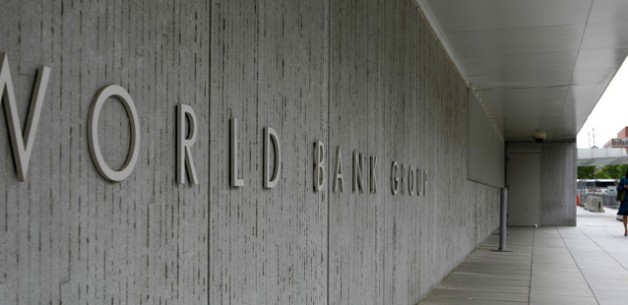ITUC General Secretary Sharan Burrow has urged World Bank President Jim Yong Kim to ensure that the institution he leads adopts a labour standard lending requirement that is as comprehensive as those adopted by other multilateral development banks, and to correct the major weaknesses in the draft “labour safeguard” that was recently issued for consultation.
Sept 8, 2014
Re-posted from ITUC
Burrow stated: “While we welcome the intention of the World Bank to adopt a labour safeguard, the version proposed would have almost no impact in protecting the rights of those who work in Bank-financed projects, since it would not apply to contracted workers nor, except for some very limited provisions, to public servants.
The Bank’s proposed labour safeguard would to all intents and purposes exist only on paper.”
Burrow noted that the no such exclusions from protection were included in labour safeguards adopted in 2006 by the World Bank’s private-sector lending arm, IFC, by the European Bank for Reconstruction and Development in 2008, and by the African Development Bank in 2013: “An important feature of all of the other banks’ labour safeguards has been their application to contractors and sub-contractors, thus ensuring coverage of a category of workers that is highly vulnerable to exploitation and abuse. By proposing to not protect these workers in its projects, the World Bank will perpetuate instances of unsafe working conditions, child labour, unpaid wages and denial of freedom of association that we have seen in Bank-funded projects.”
A second major weakness of the World Bank’s draft labour safeguard is the proposal that the ILO’s core labour standards only be fully complied with if they are incorporated in national law. Specifically, the freedom of association and right to collective bargaining provisions would apply only “where national law recognizes” them, thus opening the door to retaliatory measures by project managers against workers who wish to exercise those rights.
“This is another example of the World Bank taking a step backwards, in this case not only relative to the provisions protecting those rights in projects of the other development banks, but also relative to the Bank’s stated support for all of the core labour standards since 2002,” said Sharan Burrow. “We fully hope and expect that the World Bank will catch up to the labour standards provisions adopted by the other development finance institutions over the past several years, and not undermine the progress that has been made by adopting a labour safeguard that is full of exemptions and exclusions.”
Burrow announced that the ITUC, Global Unions Federations and national trade union centres would make their views known during public consultations that the World Bank is scheduled to hold in the coming months on its new social and environmental safeguards policy.

